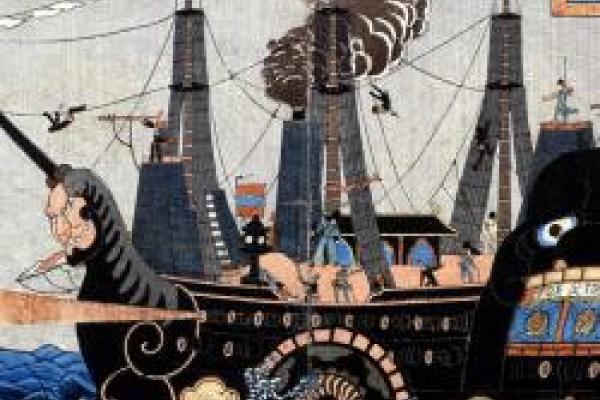
The Institute for Japanese Studies presents
"Visualizing Japan the MOOC and the History of Open Education"
Shigeru Miyagawa, Professor
Department of Linguistics and Philosophy
MIT
Flyer: Forthcoming
Abstract: Harvard and MIT coproduced the MOOC (Massive Open Online Course), "Visualizing Japan (1850s-1930s): Westernization, Protest, Modernity." The instructors are John W. Dower and Shigeru Miyagawa of MIT, Andrew Gordon of Harvard, and Gennifer Weisenfeld of Duke.
Visualizing Japan was offered by edX for the first time in the fall of 2014. The course attracted thousands of learners from over 140 countries. The learners participated actively, as shown by over 2 million page views in the discussion forum. Visualizing Japan was selected as a Finalist for the prestigious Japan Prize in 2015.
I will look at Visualizing Japan in the context of open education, starting with OpenCourseWare, where the large MIT website, Visualizing Cultures (visualizingculture.mit.edu), was developed over a 12 year period by Dower and Miyagawa. The website today contains over 50 units on China, Japan, and the Philippines. I will also go over the use of online material in residential classrooms in the flipped-class format.
Bio: Shigeru Miyagawa has been at MIT since 1991, where he is Professor of Linguistics and Kochi-Manjiro Professor of Japanese Language and Culture. He was on the original MIT committee that proposed OpenCourseWare. For his work with OCW around the world, he was awarded the President’s Award for OCW Excellence from the Global OpenCourseWare Consortium. He is also Co-director of Visualizing Cultures (visualizingcultures.mit.edu) with the Pulitzer Prize-winning historian, John W. Dower, which was awarded MIT Class of 1960 Innovation in Education Award. With John Dower, Andrew Gordon of Harvard, and Gennifer Weisenfeld of Duke, he created Visualizing Japan, a MOOC offered by edX for the first time in the fall of 2014 that has attracted over 9,000 learners world-wide. Visualizing Japan was a Finalist for the prestigious Japan Prize in 2015. For his work in technology and education, he was recognized with the Irwin Sizer Award For the Most Significant Improvement to MIT Education (1995), and “Shapers of the Future” by the educational technology magazine Converge (2002). Since 2014, he has served as the Director of Online Education for the University of Tokyo as a joint appointment with MIT. Prior to MIT, he was at Ohio State University, 1980 - 1991.
